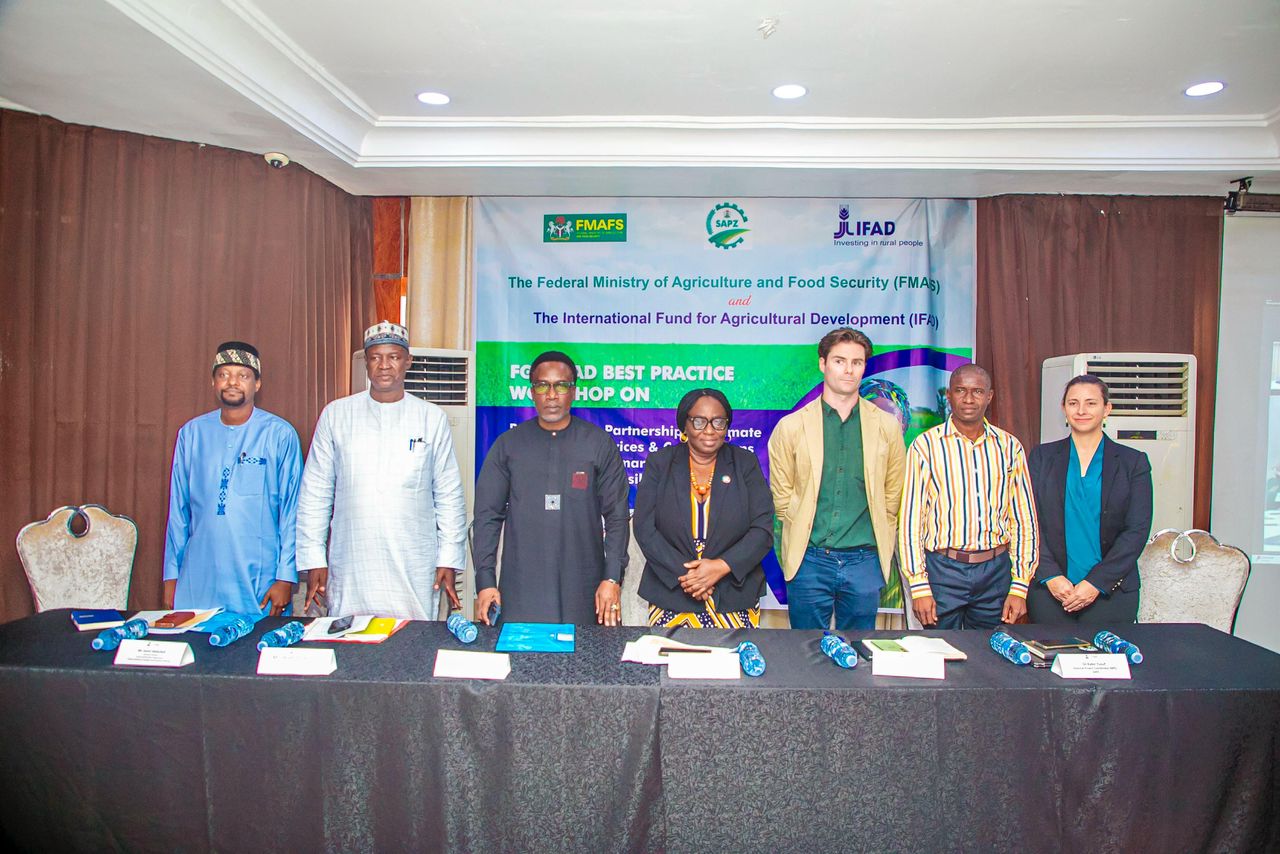NiMet Champions Digital Climate Services for Smallholder Farmers

The Director-General and Chief Executive Officer of the Nigerian Meteorological Agency (NiMet), and Nigeria’s Permanent Representative with the World Meteorological Organisation (WMO), Professor Charles Anosike, has called for stronger climate-smart public-private partnerships (PPPs) to enhance agricultural resilience in Nigeria.
Prof. Anosike made the appeal on Monday, 25th August, while delivering his opening remarks at the Best Practice Workshop on Public-Private Partnership for Climate Information Services and Validation of the Climate-Smart Agribusiness Partnership for Resilience (CSAPR) Programme, organised in Abuja by the International Fund for Agricultural Development (IFAD) in collaboration with the Federal Ministry of Agriculture and Food Security.
Commending IFAD and the Ministry for convening the workshop, Prof. Anosike underscored the urgency of embedding climate intelligence into Nigeria’s agricultural systems.
“Climate-smart Public-Private Partnership (PPP) is critical in this era of climate change to enable integration of climate-related risks into agro-infrastructure development,” he said. “This can be achieved by embedding climate data and adaptation, mitigation measures into project design to ensure long-term stability.”
He further expressed appreciation to IFAD’s Country Director, Mrs Dede Ekoue, for sustaining NiMet’s partnership with IFAD through landmark projects such as the Livelihood Improvement Family Enterprises – Niger Delta (LIFE-ND), Value Chain Development Programme (VCDP), and the Special Agro-Industrial Processing Zones (SAPZ).
Highlighting NiMet’s recent achievements, Prof. Anosike drew attention to the launch of the Enhancing National Climate Services (ENACTS) Maproom, a digital platform aimed at accelerating access to climate information across Nigeria.
The Maproom provides real-time weather forecasts, historical climate data, and tailored advisories to guide farmers in planting, harvesting, and safeguarding livelihoods.
“I encourage you all to explore the NiMet Maproom by visiting the NiMet website and share your valuable feedback,” he urged participants.
Speaking on the workshop’s broader goals, Prof. Anosike reaffirmed NiMet’s commitment to fostering private sector involvement in climate services.
“In line with the objective of this workshop today – to build a common understanding of best practices for Public-Private Partnerships (PPP) in Climate Information Services (CIS) – NiMet is actively engaging with private sector practitioners across the CIS value chain to establish sustainable Digital Climate Advisory Services (DCAS) for smallholder farmers in Nigeria,” he explained.
“These efforts are designed to deliver timely and accurate climate information, enabling smallholder farmers to make informed decisions that improve crop yields, protect their livelihoods, and strengthen resilience to the impacts of climate change,” he added.
In her remarks, IFAD Country Director Mrs Dede Ekoue applauded NiMet’s leadership in advancing climate services in Nigeria.
“Through its work in generating and disseminating climate data and forecasts, NiMet has been at the forefront of safeguarding livelihoods and strengthening national resilience,” she said.
“The Agency’s role in forging stronger linkages between science, policy, and practice is indispensable. Going forward, deeper partnerships with the private sector and development actors will be critical in ensuring that climate information is not only generated but also translated into accessible, affordable, and actionable services for millions of smallholder farmers,” she added.
The workshop brought together stakeholders from government, development partners, and the private sector to chart pathways for integrating climate-smart strategies into Nigeria’s agribusiness sector, with a particular focus on empowering smallholder farmers through timely and reliable climate information.







